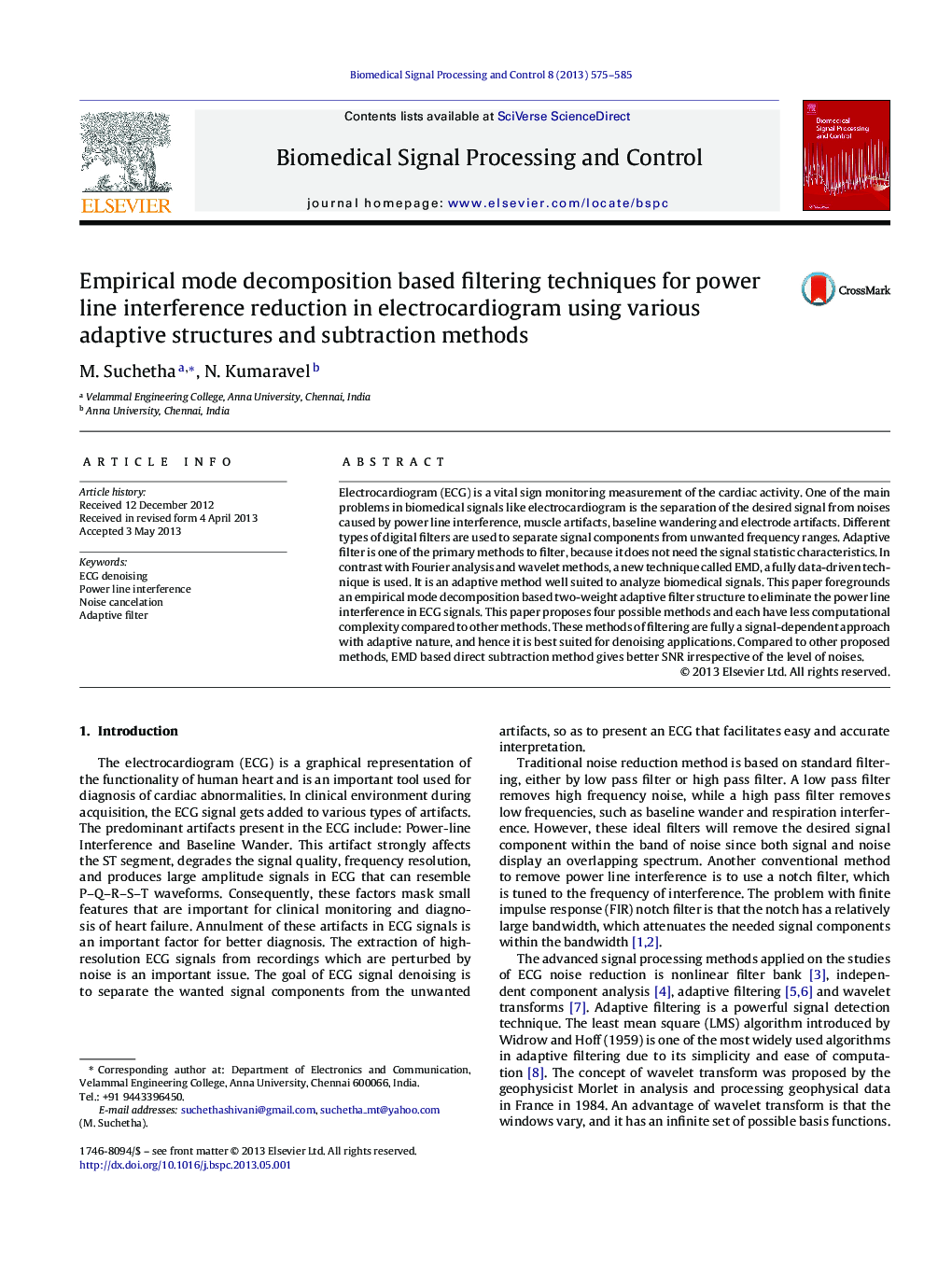| Article ID | Journal | Published Year | Pages | File Type |
|---|---|---|---|---|
| 10368419 | Biomedical Signal Processing and Control | 2013 | 11 Pages |
Abstract
Electrocardiogram (ECG) is a vital sign monitoring measurement of the cardiac activity. One of the main problems in biomedical signals like electrocardiogram is the separation of the desired signal from noises caused by power line interference, muscle artifacts, baseline wandering and electrode artifacts. Different types of digital filters are used to separate signal components from unwanted frequency ranges. Adaptive filter is one of the primary methods to filter, because it does not need the signal statistic characteristics. In contrast with Fourier analysis and wavelet methods, a new technique called EMD, a fully data-driven technique is used. It is an adaptive method well suited to analyze biomedical signals. This paper foregrounds an empirical mode decomposition based two-weight adaptive filter structure to eliminate the power line interference in ECG signals. This paper proposes four possible methods and each have less computational complexity compared to other methods. These methods of filtering are fully a signal-dependent approach with adaptive nature, and hence it is best suited for denoising applications. Compared to other proposed methods, EMD based direct subtraction method gives better SNR irrespective of the level of noises.
Related Topics
Physical Sciences and Engineering
Computer Science
Signal Processing
Authors
M. Suchetha, N. Kumaravel,
